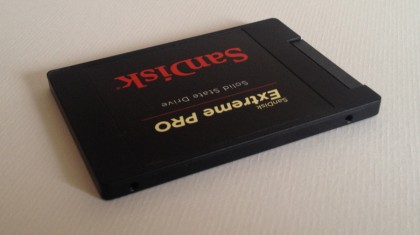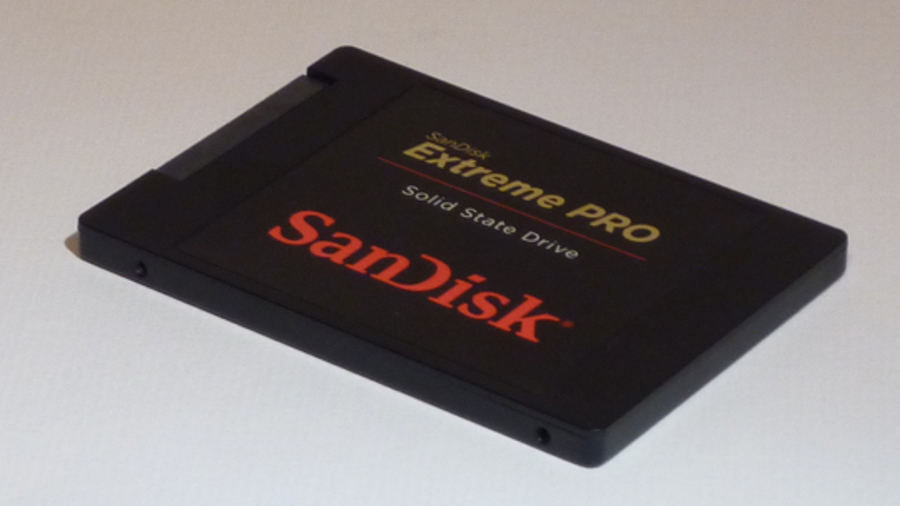Why you can trust TechRadar
When it comes to SSD performance, the limitation of the 6 Gbit/sec SATA bus is a hard limit on the sequential transfer speeds attainable. The only way to overcome this limit is by hooking directly into the PCI-Express bus, as with existing drives based on PCI cards, such as the OCZ RevoDrive 350.
The SATA Express and M.2 connectors are just starting to show up on motherboards and laptops, which allow standard-sized SSDs to reach the kind of speeds expected from PCI-Express drives. But these aren't available in great numbers, mainly because the current market is so limited, but this situation will undoubtedly change soon.
With the Extreme Pro, SanDisk quotes sequential transfer speeds of up to 550MB/sec while reading, and up to 520MB/sec writing for the 240GB model, with 515MB/sec on the 480GB and 960GB models. Read IOPS are quoted as up to 100,000 read and 90,000 write. Impressive claims indeed.

Crystal clear
In CrystalDiskMark, these claims were just about met, with the SanDisk Extreme Pro achieving 547MB/sec sequential read speeds and 509MB/sec write speeds. IOPS came slightly under though, with 80,100 IOPS random 4K read, and 76,670 IOPS writing.
For comparison, in the same test, Samsung's 850 Pro managed just slightly better scores in the sequential tests – with 550MB/sec reading and 525MB/sec writing. But that drive managed better IOPS, hitting 83,500 writing.
The Extreme Pro read access time in AS SSD of 0.035ms is excellent, the fastest I've yet recorded, but the 0.04ms write is ever so slightly worse than a few other drives I've seen. In ATTO Disk Benchmark, I measured consistently high write speeds hovering around 515MB/sec across all data sizes over 32K, a clear leap ahead of the Samsung 845DC EVO which topped out at 441MB/sec.
Overall, these performance results are highly impressive. While not enough to crown the Extreme Pro the fastest SSD ever made, it's certainly on the winners' podium, claiming a silver medal to the Samsung 850 Pro's gold.
